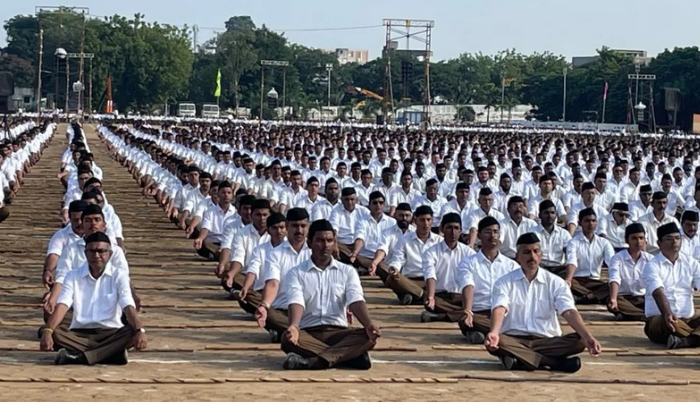
The Rashtriya Swayamsevak Sangh (RSS), the Hindu nationalist organisation whose work played a large role in propelling Indian Prime Minister Narendra Modi to power, has celebrated its centenary with an event attended by thousands of members.
In a speech at RSS headquarters in the western city of Nagpur, its chief Mohan Bhagwat addressed a range of topics, including the conflict with Pakistan earlier this year, climate change, economic inequality and political turmoil in India's neighbouring countries.
"The world functions through dependence on each other. That is how relations between any two nations are maintained. No country can survive in isolation," he said, echoing Modi's emphasis on self-reliance in the context of Donald Trump's hefty tariffs on India.
The all-male RSS, the most powerful of India's Hindu nationalist groups, has often been accused of practising a divisive ideology, which it denies.
Founded in 1925 by an Indian physician, Keshav Baliram Hedgewar, the RSS, seen as the ideological fountainhead of the country's ruling political party, the Bharatiya Janata Party (BJP), has become the most influential organisation in the country.
While it says it is not a political organisation, the RSS plays a seminal role in Indian politics due to its ideology and connection to the BJP. Many RSS volunteers are supporters of the BJP.
Modi, who joined the RSS as a pracharak (campaigner) when he was a young man, also praised the organisation at an event in Delhi on Wednesday, and released a special commemorative stamp and coin to mark the occasion - sparking criticism from opposition parties.
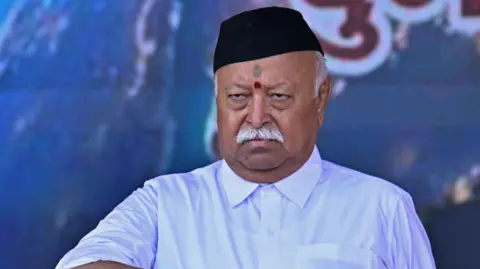 AFP via Getty Images
AFP via Getty ImagesIn Nagpur on Thursday, organisers say 3,800 volunteers participated in the event.
The men - the RSS does not accept female members, though it has a parallel organisation for women - stood in a military-like formation on the field of an outdoor stadium, wearing their instantly recognisable uniform of khaki trousers, white shirts with sleeves rolled up to the elbows and black triangular caps on their heads. Under the blazing sun, they performed a synchronised exercise routine that RSS volunteers perform at the beginning of their daily meetings.
What began as a group of just more than a dozen men has grown to become the largest volunteer organisation in the world, according to Bhagwat. But when asked how many people are members of the RSS, spokesperson Sunil Ambekar says they do not keep track.
"It's not a government set-up. Please understand, if you see us in a very fixed frame, then you don't understand the RSS. The RSS is a volunteer organisation, working on the ground."
The opacity around who is a member of the RSS and how many people belong to it is by design, experts say.
"It's an extremely complex organisational network," says Tanika Sarkar, a visiting professor at Ashoka University in Haryana state. "It is a sprawling network which is difficult to characterise and difficult also to identify clearly, because you never know where the RSS ends and the other far-right organisations begin."
The reference is to the Sangh Parivar, or family of Hindu nationalist groups, which are led by the RSS.
It is not easy to pinpoint exactly what makes the RSS. It operates several charitable programmes such as schools, health clinics and its members are often on the scene to help during natural disasters, organising volunteers and distributing aid.
"It can be called a political organisation, it can be called an NGO, it can be called a welfarist organisation, all of which would be true and none of which would be entirely accurate," says Ashok Malik, a partner with business consultancy firm The Asia Group and a former adviser to the government.
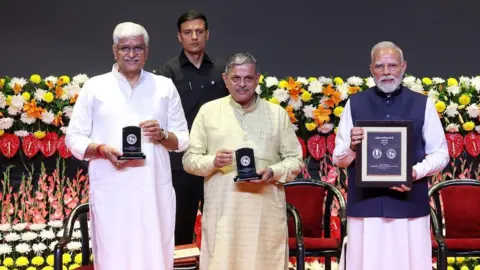 Narendra Modi/X
Narendra Modi/XBut its Hindu nationalist principles make it a controversial organisation, says Prof Sarkar.
"Primarily because of its very visceral Islamophobia, which it has been teaching for a century. Its claim is that only Hindus are the rightful owners of the country and citizenship is actually the rightful property of Hindus," which she says ends up "othering" large parts of the country.
In his speech on Thursday, Bhagwat - as he has often done - tried to distance himself from division and violence by invoking India's long history of diversity.
"Despite all our distinct identities, we are all parts of a larger society. As a society, a country, a culture and a nation, we are united," he said.
But the ideology promoted by the RSS has been linked to some of the darkest moments in post-independence India.
On 6 December 1992, members of the RSS were part of a Hindu mob which destroyed the 16th Century Babri Mosque in the northern town of Ayodhya, claiming it had been built on the site of a temple destroyed by Muslim rulers.
It sparked religious riots across the country, killing more than 2,000 people. (After the mosque's demolition, the RSS was banned for a third time in post-independent India, for about a year - the first time was after independence leader Mahatma Gandhi was assassinated by a man believed to be a former RSS member).
Last year, Modi fulfilled a decades-old Hindu nationalist pledge to build a temple in Ayodhya where the mosque had once stood.
Lately the RSS has been making an effort to increase its public outreach. Last month, it held a three-day conclave in Delhi and invited members of the media. Although the centenary events were open to the foreign press, it was still tightly controlled, with journalists not allowed to speak to attendees or volunteers.
Nevertheless Mr Malik believes this outreach is part of the RSS's efforts to be better understood. "The toxicity in our political and public rhetoric is a long-term challenge for the country and for society. It [the RSS] is trying to inject a correction and a maturing."
But for minority communities, this softer image doesn't signal any change to the core belief of the organisation, that India, as defined by the RSS, is for Hindus first.
SOURCE/AUTHOR : BBC NEWS - Samira Hussain, South Asia correspondent, Nagpur
Venues
Related News

'I will never let your legacy die' - Charlie Kirk's widow gives tearful address after shooting

One hellscape to another: Gazans tell of dire conditions in Israeli-declared humanitarian zone
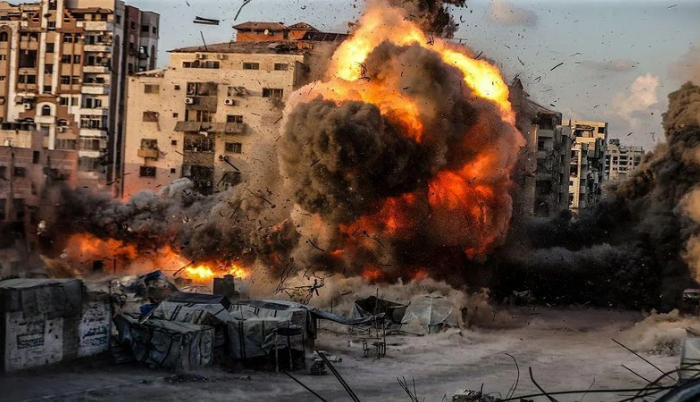
Israeli forces near Gaza City centre as Hamas reportedly prepares for street-to-street fighting

Brunei Prayer Times
| Suboh | 4:58 am |
| Zohor | 12:09 pm |
| Asar | 3:24 pm |
| Maghrib | 6:11 pm |
| Isyak | 7:16 pm |
Venues
Archive
Lagu HK KDYMM Ke-79: Putri Norizah - Puja Usia (1447H / 2025M) - Versi Terkini

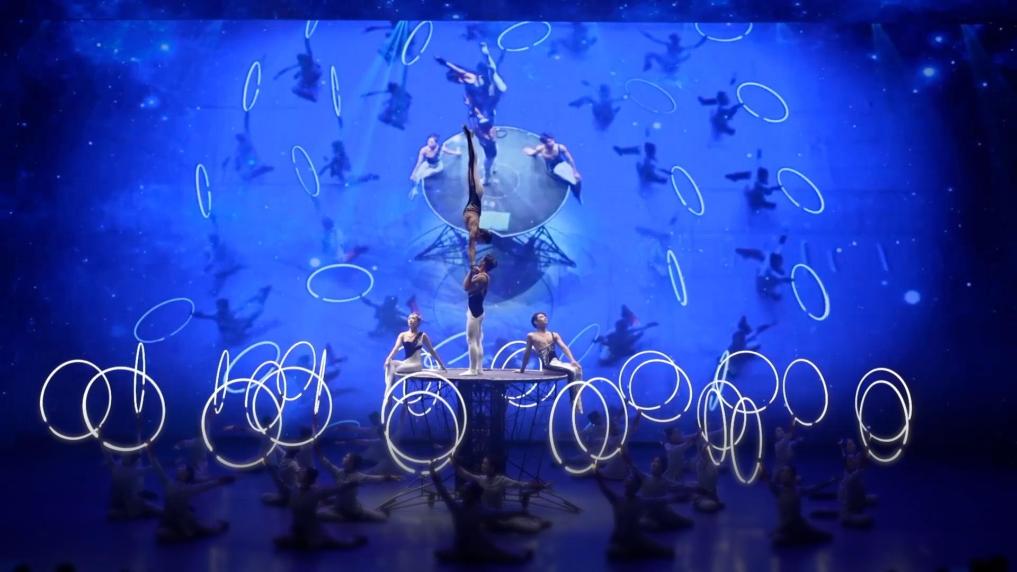












































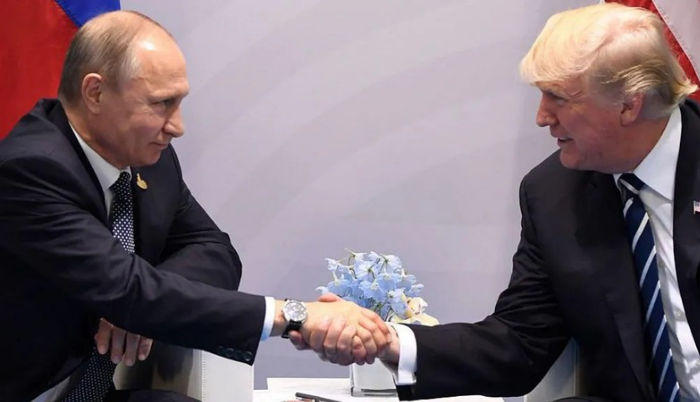







































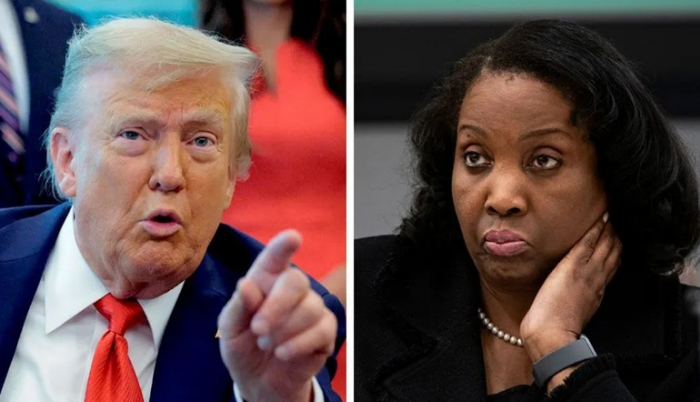






















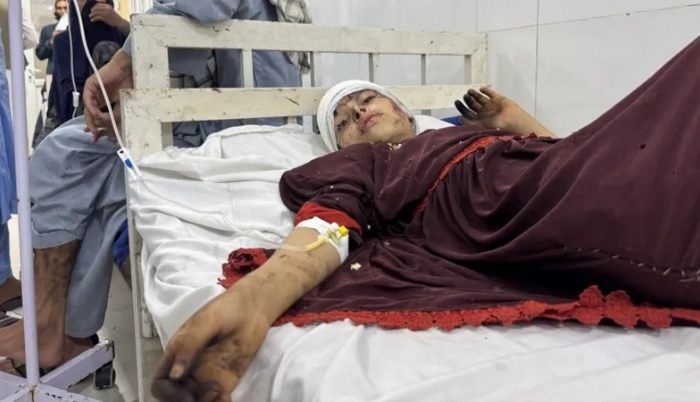






























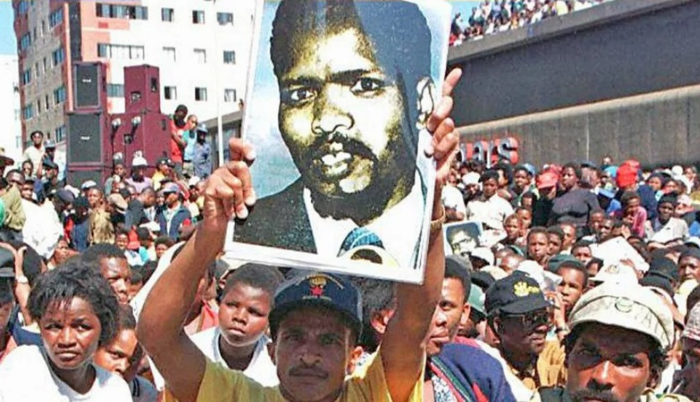
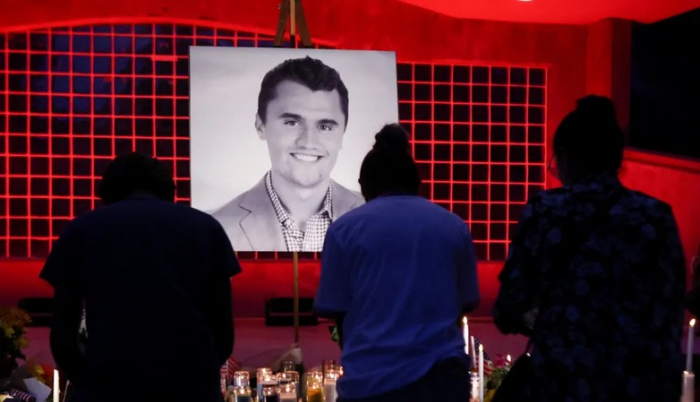










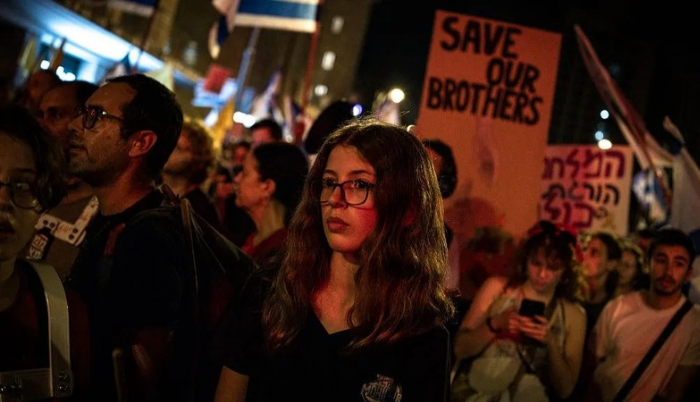



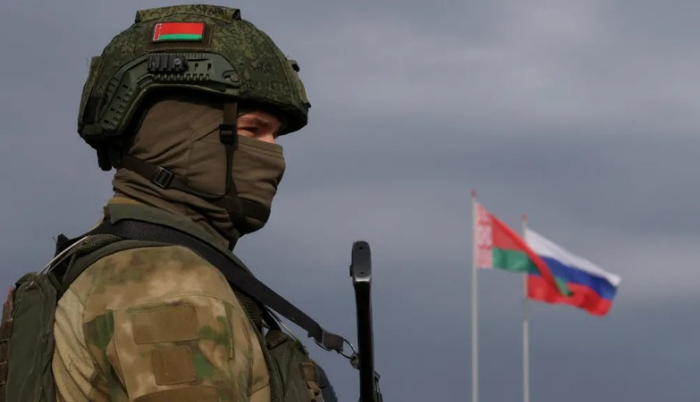



































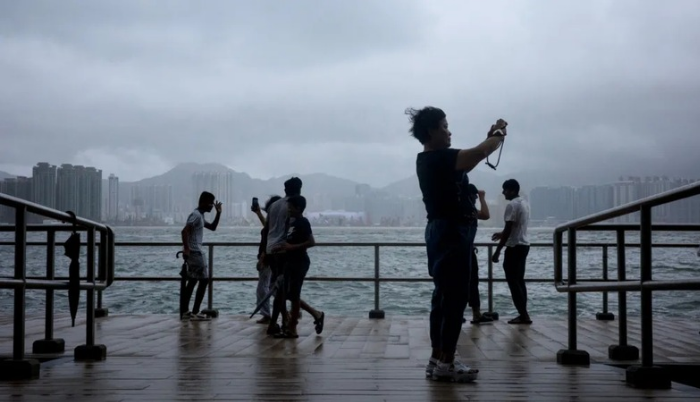
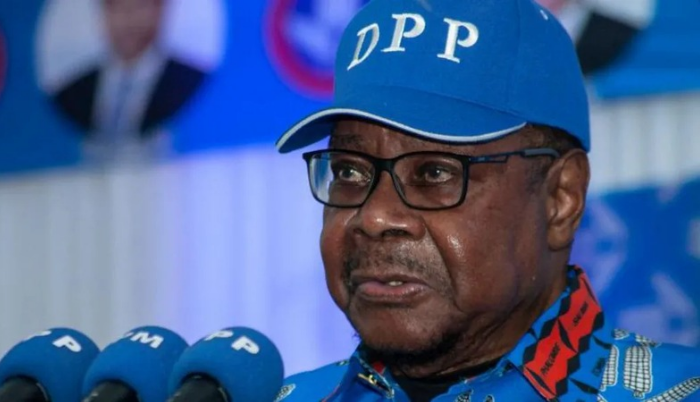
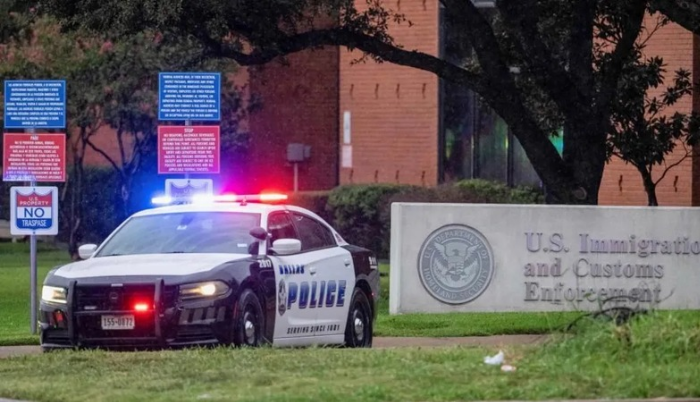
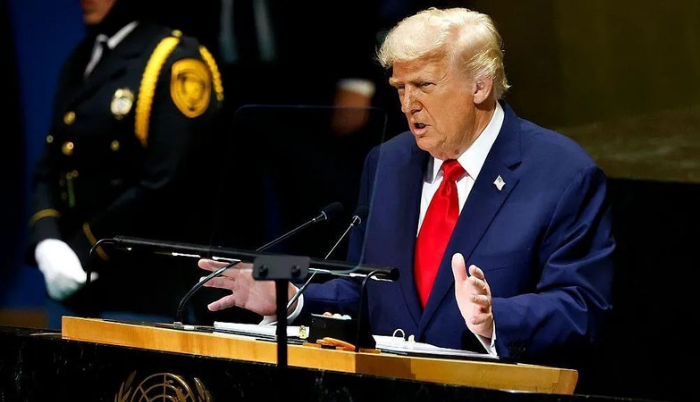
























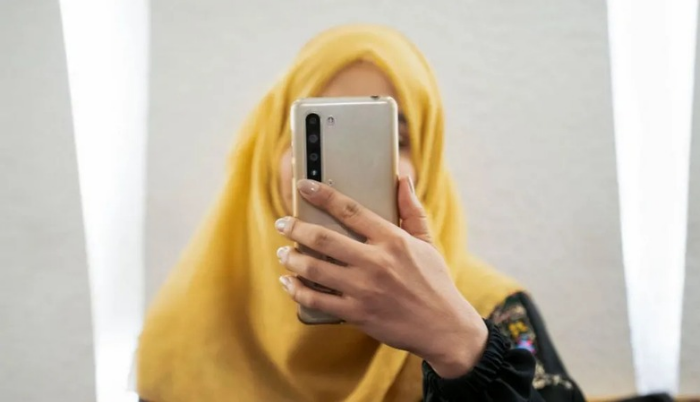
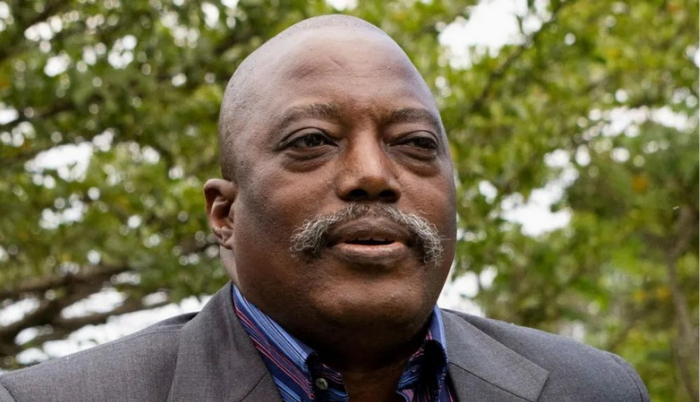
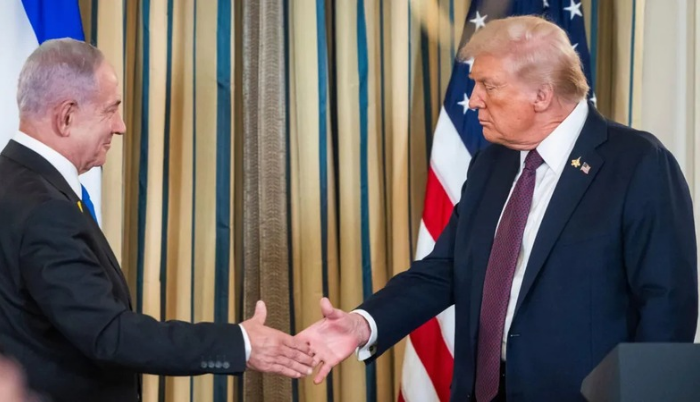

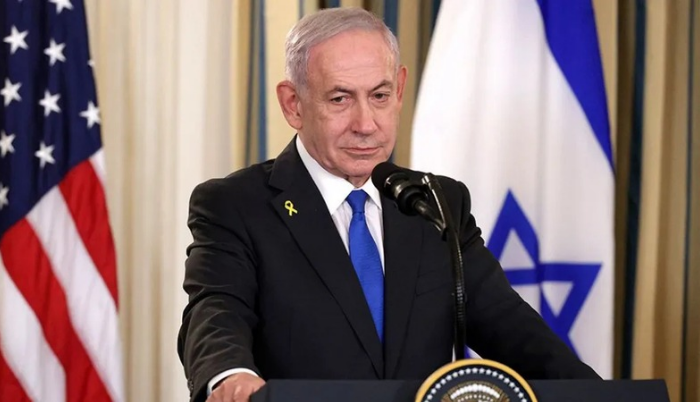
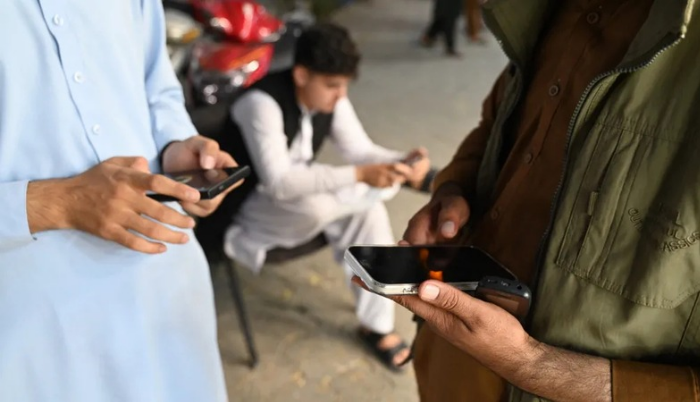
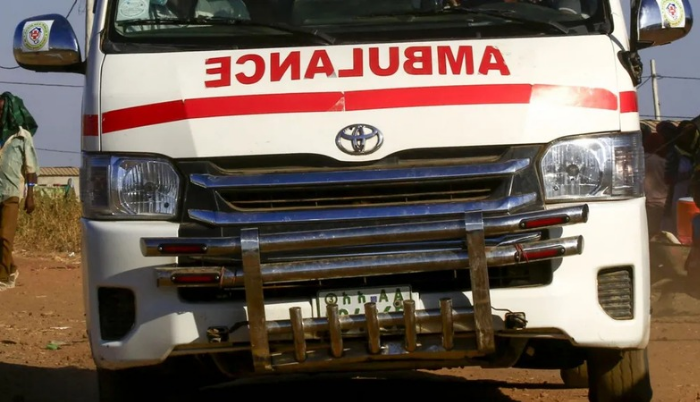
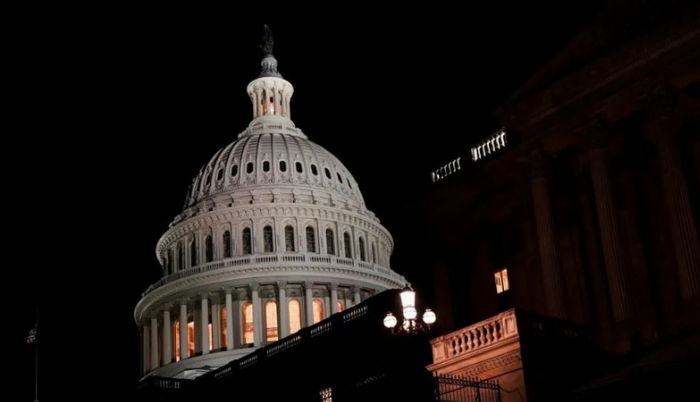
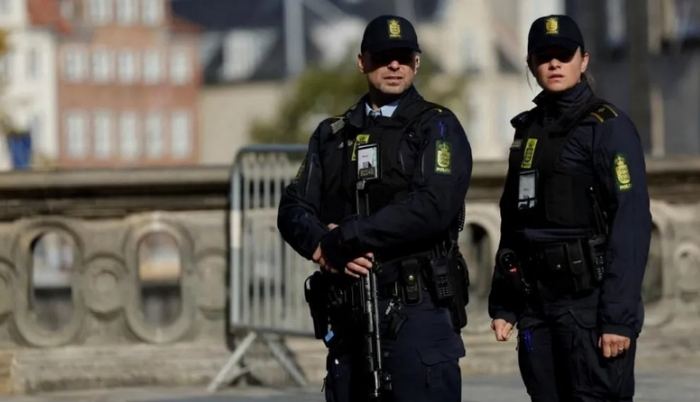
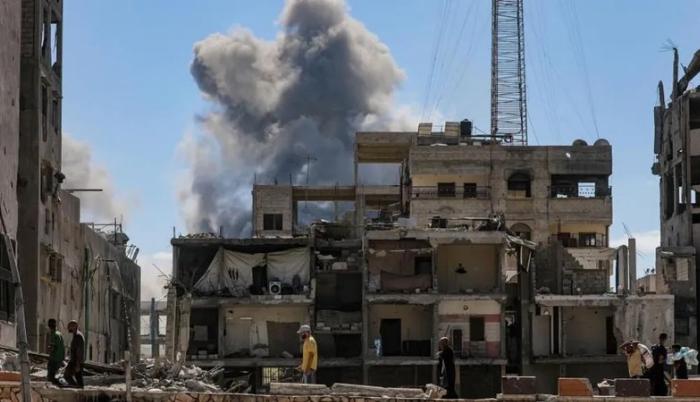
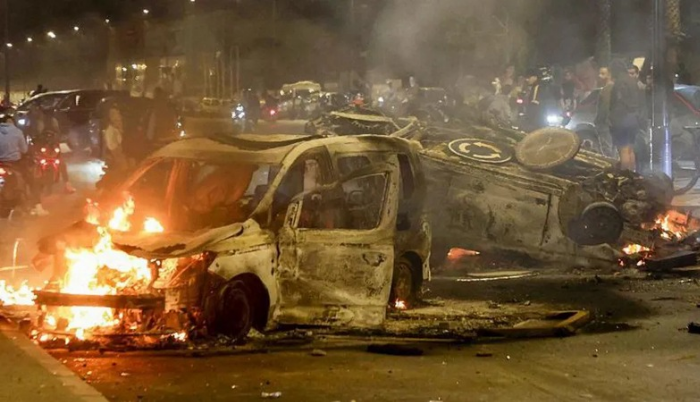
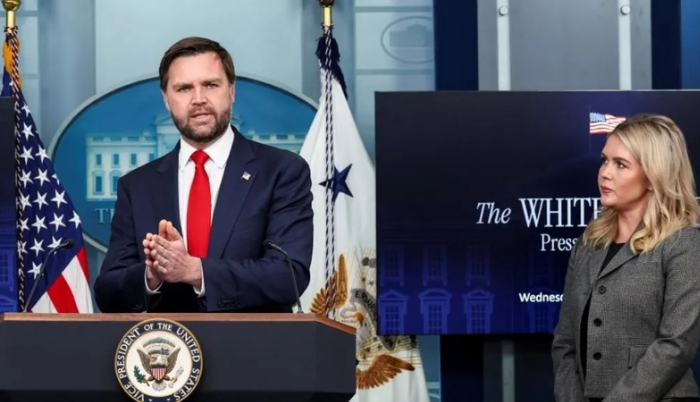
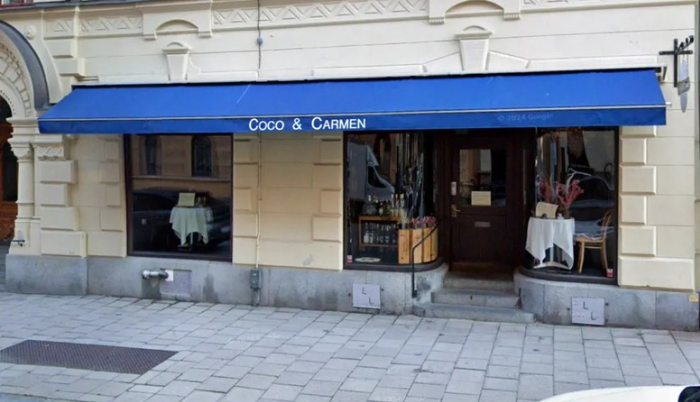
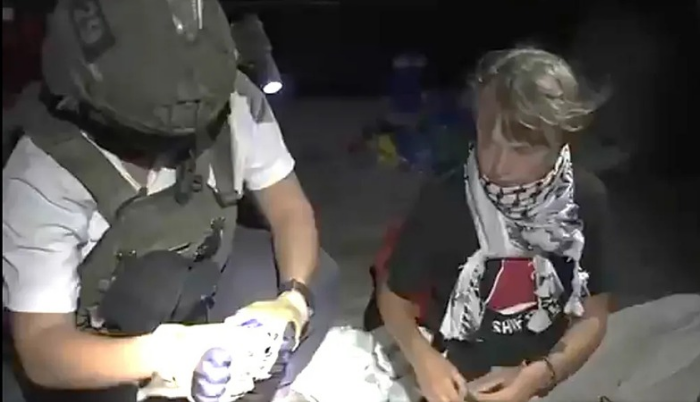
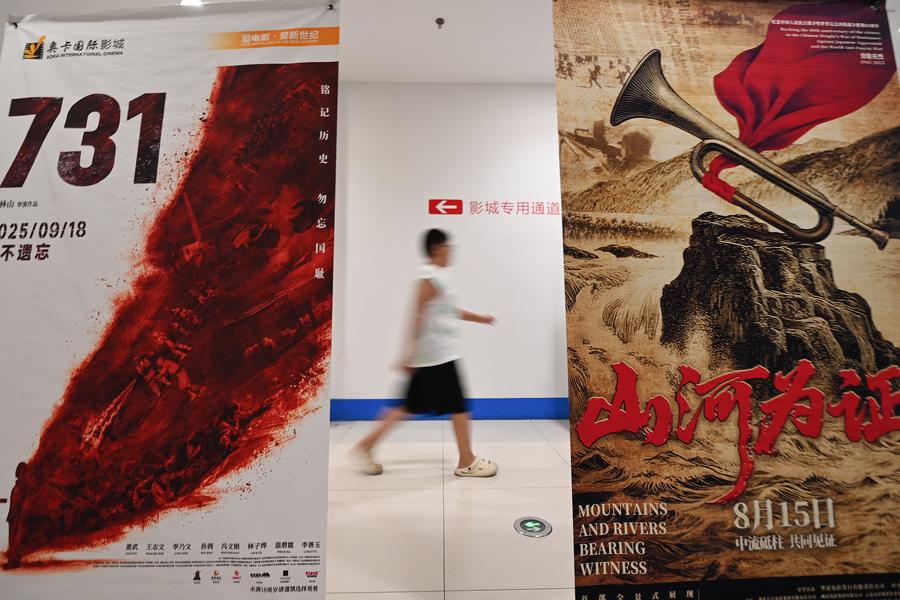
Comments (0)
No comments yet. Be the first to comment!
Leave a Comment